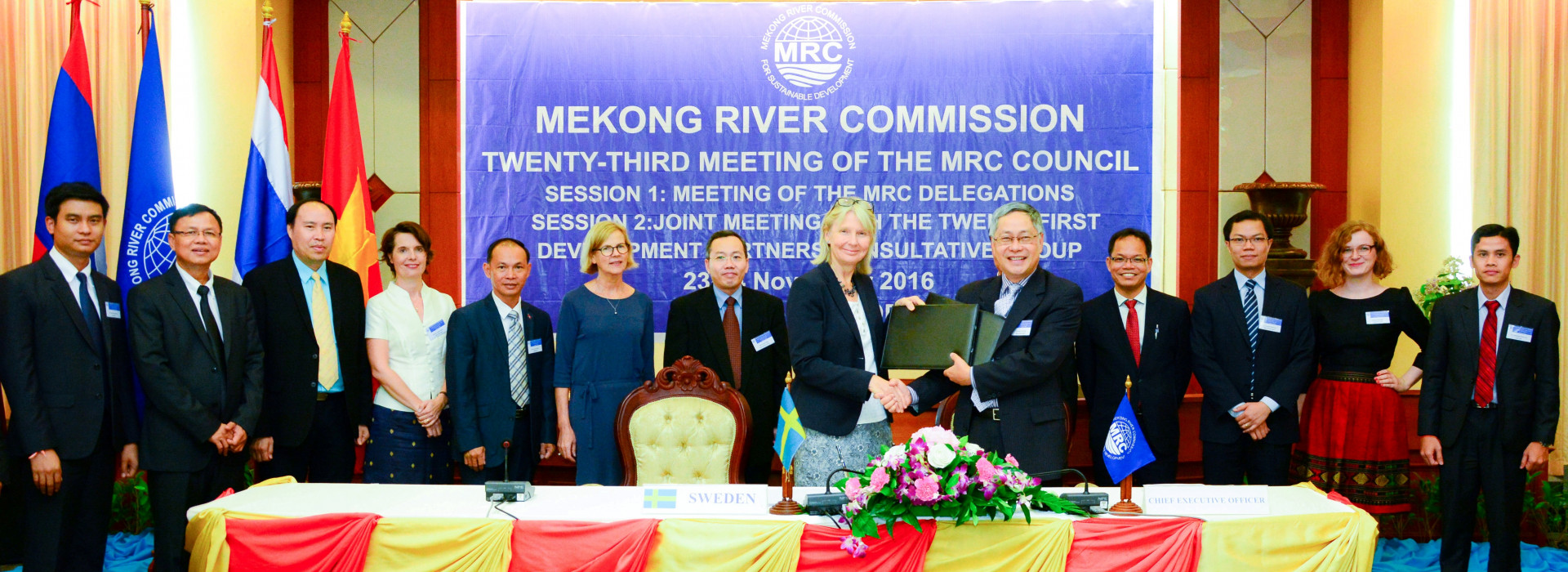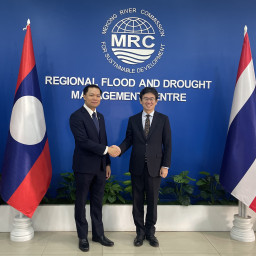Government of Sweden provides USD 5.3 million to MRC for more sustainable development of the Mekong basin
Vientiane, Lao PDR, 25 November 2016 – The Government of Sweden has granted SEK 49 million (equivalent to USD 5.3 million) to the Mekong River Commission to implement its strategic work on four key results areas.
The new grant contributes to the MRC basket fund for implementation of the MRC Strategic Plan 2016-2020. Anne-Charlotte Malm, Head of Development Cooperation, Embassy of Sweden to Thailand and Pham Tuan Phan, Chief Executive Officer of the MRC Secretariat, signed the financial agreement on 23 November on the occasion of the 23rd MRC Council meeting in Pakse, Lao PDR.
“Sweden has been a longstanding development partner of the MRC since the establishment of the Mekong River Commission in 1995. In the last 21 years, the incessant support for institutional component contributed significantly to organizational reform and smooth operation of the MRC Secretariat. We are glad to continuing our good cooperation with the Government of Sweden and other partners in the upcoming years” said Pham Tuan Phan.
During this strategic cycle of 2016-2020, the MRC will focus its work on four key result areas such as strengthening regional cooperation, improving monitoring and communication of conditions in the basin, enhancing national plans and projects; and turning the MRC into a leaner, more effective river basin organisation. Strengthening gender mainstreaming as cross cutting issue will also be one of focuses for cooperation between the MRC Secretariat and the Embassy of Sweden to Thailand.
Sweden has contributed so far more than USD 31 million to the MRC for activities related to environment protection, climate change adaptation, basin planning, fisheries management, flood mitigation, and institutional support.
Note to editors:
The MRC is the intergovernmental body responsible for cooperation on the sustainable management of the Mekong Basin whose members include Cambodia, Lao PDR, Thailand and Viet Nam. It serves as a regional platform for water diplomacy as well as a knowledge hub of water resources management for the sustainable development of the region. It is not a supra-national or regulatory body. The commission looks across all sectors including sustaining fisheries, identifying opportunities for agriculture, maintaining the freedom of navigation, flood management and preserving important ecosystems. Superimposed on these are the future effects of more extreme floods, prolonged drought and sea level rise associated with climate change.
-END-





